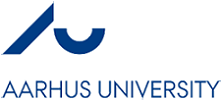Bioinformatics

Introduction
Bioinformatics is a fusion of biology, statistics and computer science that focuses on the development and application of computational solutions for analysing and handling biological and biomedical data. The field of bioinformatics plays a key role in modern biology and biomedicine, where collecting and analysing large data sets is essential. To address the challenges of big data in modern biology and biomedicine, a bioinformatician must combine practical and theoretical skills in statistical modelling, data analysis, and computer programming with a deep knowledge of biology and biomedicine - a network of competencies that students will acquire through the two-year MSc in Bioinformatics programme at Aarhus University.
The MSc in Bioinformatics programme is open to all students with a BSc degree in the natural, technical or health sciences with a significant content of mathematical, biological, and/or computational subjects, such as a BSc degree in bioinformatics, biology, molecular biology, molecular medicine, mathematics, statistics or computer science. Students on the programme will be exposed to the many topics in bioinformatics through lectures, projects and exercise sessions; they will specialise in a bioinformatics subject during their thesis work, while also acquiring general competencies in data analysis and computer programming.
Career profile
The MSc in Bioinformatics programme is both practical and research oriented. It reflects the interests of the business community, research institutions and the public sector. Students obtain skills within the development and application of computational solutions for analysing and handling data-intensive systems in general, and biological and biomedical systems in particular. Graduates are thus extremely well placed to find employment as bioinformatics specialists in the biotechnology or biomedical industry, or in other areas where computational analysis of large amounts of data are essential. They are also attractive to the IT industry as software developers.
Na studia magisterskie mogą kandydować wszyscy, którzy ukończyli studia licencjackie lub inżynierskie (studia I stopnia), studia magisterskie lub studiują na ostatnim roku studiów I-stopnia. Studia, które planujesz powinny mieć zbliżony profil do tych obecnych lub ukończonych, ponieważ w procesie rekrutacji kluczowa jest ich zgodność programowa.
Wykaz punktów ECTS – osoby, które są jeszcze w trakcie studiów, muszą załączyć wypis punktów ECTS, w którym będzie wykazane, jakie przedmioty były realizowane na studiach oraz ile punktów za nie otrzymano.
Dyplom ukończenia studiów licencjackich lub inżynierskich – jeśli jesteś absolwentem wyższej uczelni, nie potrzebujesz wypisu, wystarczy załączyć dyplom ukończenia studiów wraz z suplementem (w języku angielskim lub oryginał z tłumaczeniem)
Course description - należy przygotować dokument, zbierający cały sylabus ze studiów licencjackich. Takie sylabusy najczęściej są do pobrania na stronie uniwersytetu. Należy je przetłumaczyć na język angielski (można samodzielnie) i złączyć w jeden dokument. Warto też zapytać w dziekanacie uczelni, czy nie dysponują wersją angielską.
Oficjalna skala oceniania Twojej uczelni - możesz dostać taki dokument w dziekanacie Twojej uczelni lub skonstruować samodzielnie. W obu przypadkach dokument powinien zawierać pieczątkę dziekanatu.
Spełnienie wymagań w zakresie języka angielskiego można udokumentować w jeden z następujących sposobów:
IELTS – 6.5
TOEFL – 83 (Aarhus University TOEFL kod - 8935)
Uwaga: wymagania językowe mogą ulec zmianie. Przed wysłaniem aplikacji upewnij się jakie są wymagania językowe na konkretny kierunek bezpośrednio na stronie uczelni.
W przypadku zdawania certyfikatu IELTs upewnij się, czy uczelnia oprócz wymagań oceny końcowej nie ma również wymagań odnośnie ocen cząstkowych.
You can be admitted to the master's programme if the university assesses that your education has a level, scope, and content that corresponds to the academic requirements specified below.
| Subject area | Number of ECTS |
| Basic elements within Mathematics and Statistics | 15 |
| Basic subject elements within either Computer science, Molecular biology and Genetics or Bioinformatics | 15 |
| Additional subject elements within at least one of the subject areas (Statistics, Computer science, Molecular biology and Genetics or bioinformatics) | 60 |
| Total | 90 |
